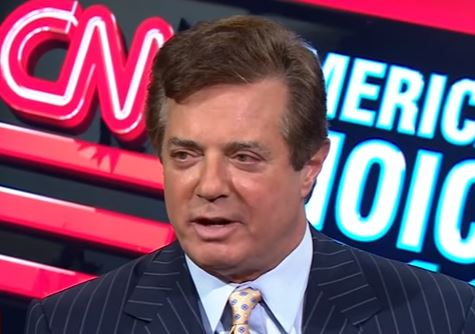
WASHINGTON (AP) — President Donald Trump‘s former campaign chairman will not be testifying Wednesday before the Senate Judiciary Committee, as originally scheduled, after the committee rescinded its subpoena.
The committee withdrew its subpoena for Paul Manafort late Tuesday after Manafort agreed to turn over documents and to continue negotiating about setting up an interview with the panel, according to Taylor Foy, a spokesman for Sen. Chuck Grassley, the Judiciary Committee chairman. The committee also removed Donald Trump Jr. from the list of witnesses scheduled for Wednesday’s public hearing.
The panel has sought to talk with Manafort about a June 2016 Trump Tower meeting in New York with Russian lawyer Natalia Veselnitskaya, among other issues including his foreign political work on behalf of Ukrainian interests.
On Tuesday Manafort met with Senate Intelligence Committee staff, providing his recollection of the Veselnitskaya meeting and agreeing to turn over contemporaneous notes of the gathering last year, according to people familiar with the closed-door interview. Manafort “answered their questions fully,” said his spokesman, Jason Maloni.
Trump’s son-in-law and adviser Jared Kushner was also on Capitol Hill Tuesday for a second day of private meetings, this time for a conversation with lawmakers on the House Intelligence Committee.
Both Manafort and Kushner have been cooperating with the committees which, along with Special Counsel Robert Mueller, are probing Russia’s interference in the 2016 presidential election and possible collusion with Trump associates.
The two men have faced particular scrutiny about attending the Trump Tower meeting because it was flatly described in emails to Donald Trump Jr. as being part of a Russian government effort to aid Trump’s presidential campaign.
Manafort’s discussion with committee staff was limited to his recollection of the June 2016 meeting, according to two people familiar with the interview. Both demanded anonymity to discuss details because the interview occurred behind closed doors. Manafort had previously disclosed the meeting in documents he turned over to the committee. He has now provided the committee with notes he took at the time, one of the people said.
The other person said Manafort has also said he will participate in additional interviews with the Senate Intelligence Committee staff on other topics if necessary. Those meetings haven’t yet been scheduled.
Kushner spent about three hours behind closed doors Tuesday with the House intelligence panel. Republican Rep. Mike Conaway of Texas, who is leading the committee’s Russia probe, said he found Kushner to be “straightforward, forthcoming, wanted to answer every question we had.” He said Kushner was willing to follow up with the committee if it has additional questions.
The committee’s ranking Democrat, Rep. Adam Schiff of California, said the questions touched on “a range of issues the committee had been concerned about.”
“We appreciate his voluntary willingness to come and testify today,” Schiff added.
On Monday, Kushner answered questions from staff on the Senate’s Intelligence Committee, acknowledging four meetings with Russians during and after Trump’s victorious White House bid and insisting he had “nothing to hide.”
Emails released this month show that Trump Jr., the president’s eldest son, accepted a June 2016 meeting with Veselnitskaya with the understanding that he would receive damaging information on Democrat Hillary Clinton as part of a Russian government effort to help Trump’s campaign. But, in his statement for the two intelligence committees, Kushner said he hadn’t read those emails until being recently shown them by his lawyers.
Kushner’s statement was the first detailed defense from a campaign insider responding to the controversy that has all but consumed the first six months of Trump’s presidency.
Kushner called the meeting with Veselnitskaya such a “waste of time” that he asked his assistant to call him out of the gathering.
“No part of the meeting I attended included anything about the campaign; there was no follow-up to the meeting that I am aware of; I do not recall how many people were there (or their names), and I have no knowledge of any documents being offered or accepted,” he said.
Kushner on Monday confirmed earlier media reports that he had suggested using Russian diplomatic facilities to set up secure communications between Trump adviser Michael Flynn, who would become national security adviser, and Russian officials. But he disputed that it was an effort to establish a “secret back channel.”
His statement describes a December meeting with Flynn and Russian Ambassador Sergey Kislyak in which Kushner and Kislyak discussed establishing a secure line for the Trump transition team and Moscow to communicate about policy in Syria.
___
Chad Day and Mary Clare Jalonick of the Associated Press wrote this article. Associated Press writer Eric Tucker contributed to this report.
[Image via Screengrab]